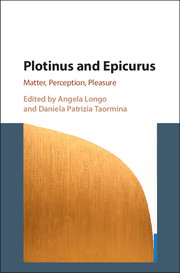Book contents
- Plotinus and Epicurus
- Plotinus and Epicurus
- Copyright page
- Contents
- Contributors
- Preface
- Abbreviations
- Transliteration
- Introduction*
- Part I Historical overview
- Part II Common anti-Epicurean arguments in Plotinus
- Part III Plotinus' criticism of Epicurean doctrines
- Part IV Epicurean elements in Plotinus
- Bibliography
- Index locorum
- Index of modern authors
- Index of main concepts
- References
Bibliography
Published online by Cambridge University Press: 05 August 2016
- Plotinus and Epicurus
- Plotinus and Epicurus
- Copyright page
- Contents
- Contributors
- Preface
- Abbreviations
- Transliteration
- Introduction*
- Part I Historical overview
- Part II Common anti-Epicurean arguments in Plotinus
- Part III Plotinus' criticism of Epicurean doctrines
- Part IV Epicurean elements in Plotinus
- Bibliography
- Index locorum
- Index of modern authors
- Index of main concepts
- References
Information
- Type
- Chapter
- Information
- Plotinus and EpicurusMatter, Perception, Pleasure, pp. 199 - 214Publisher: Cambridge University PressPrint publication year: 2016
